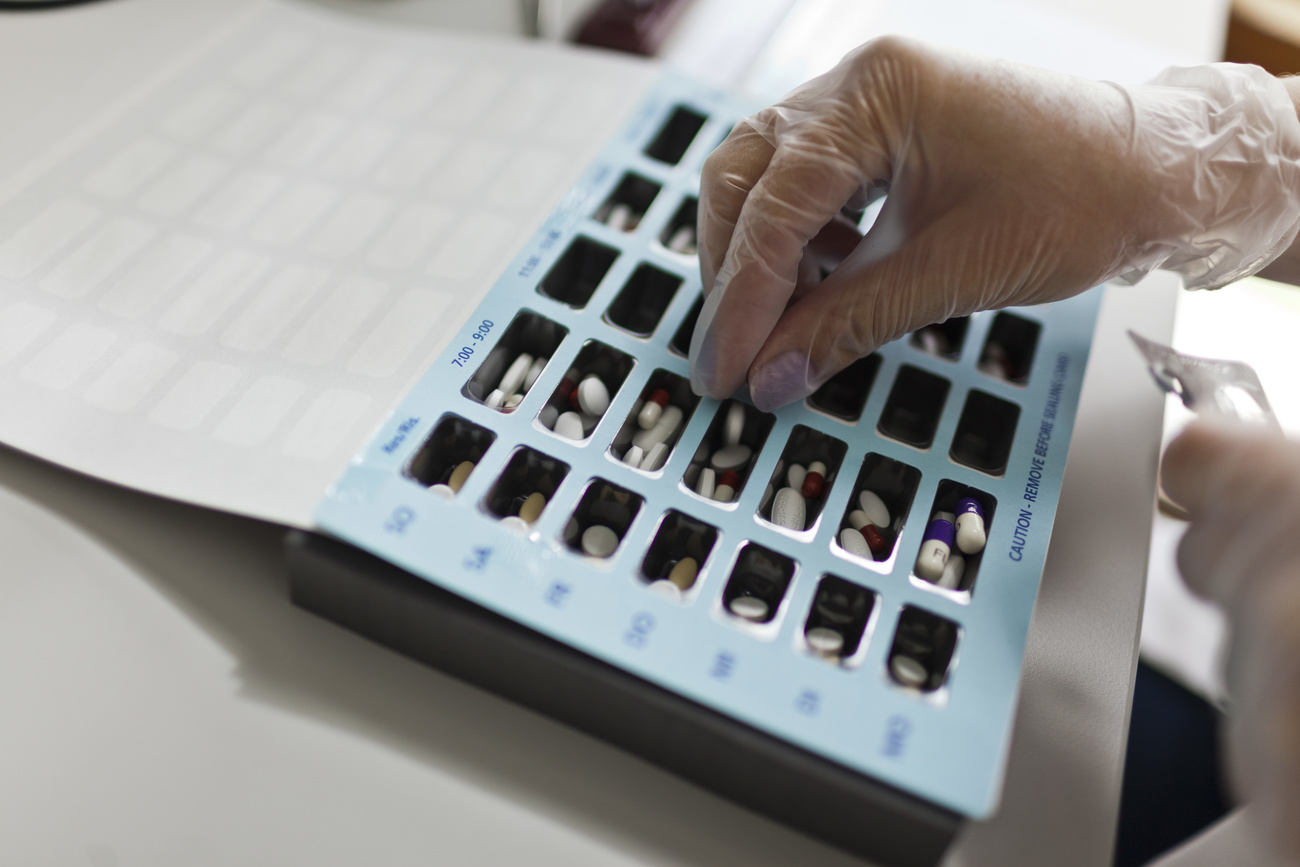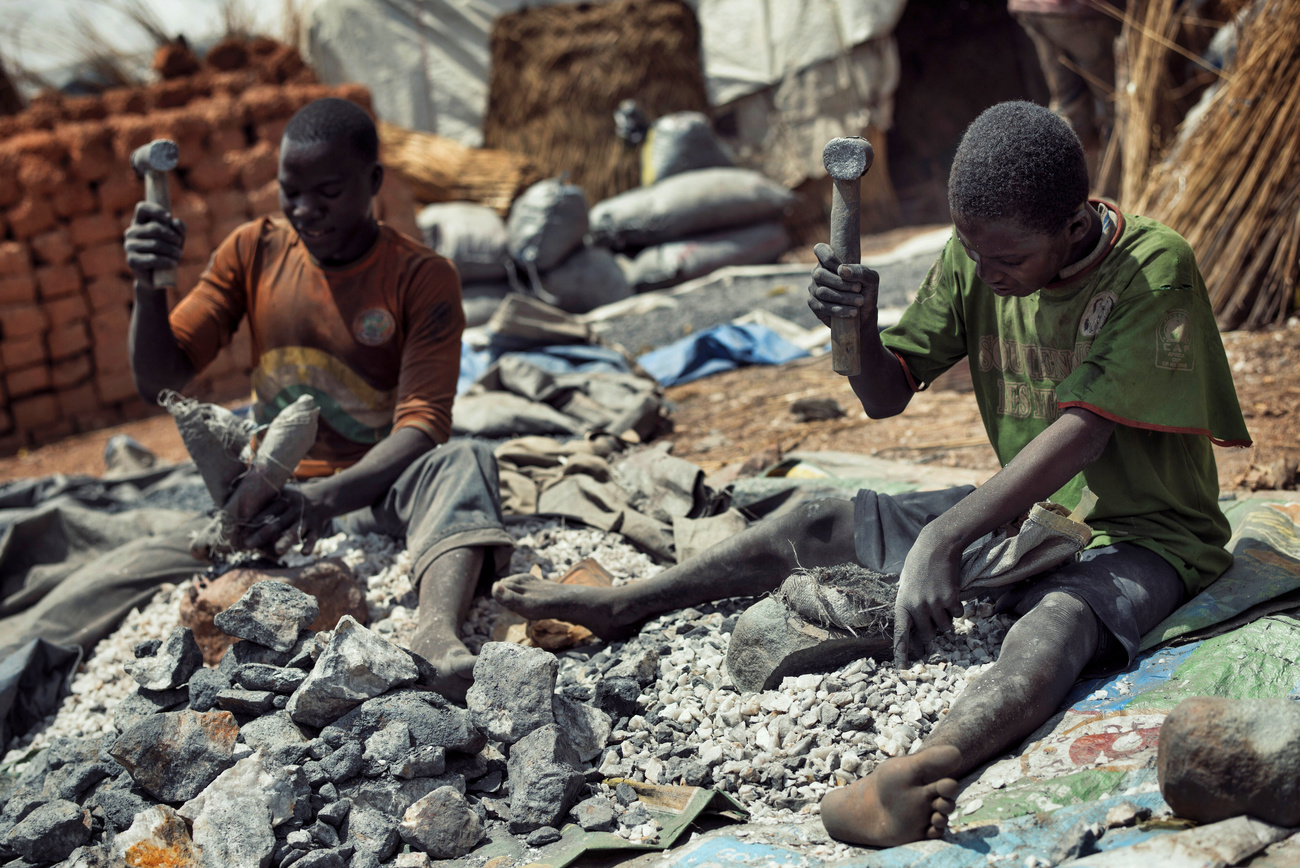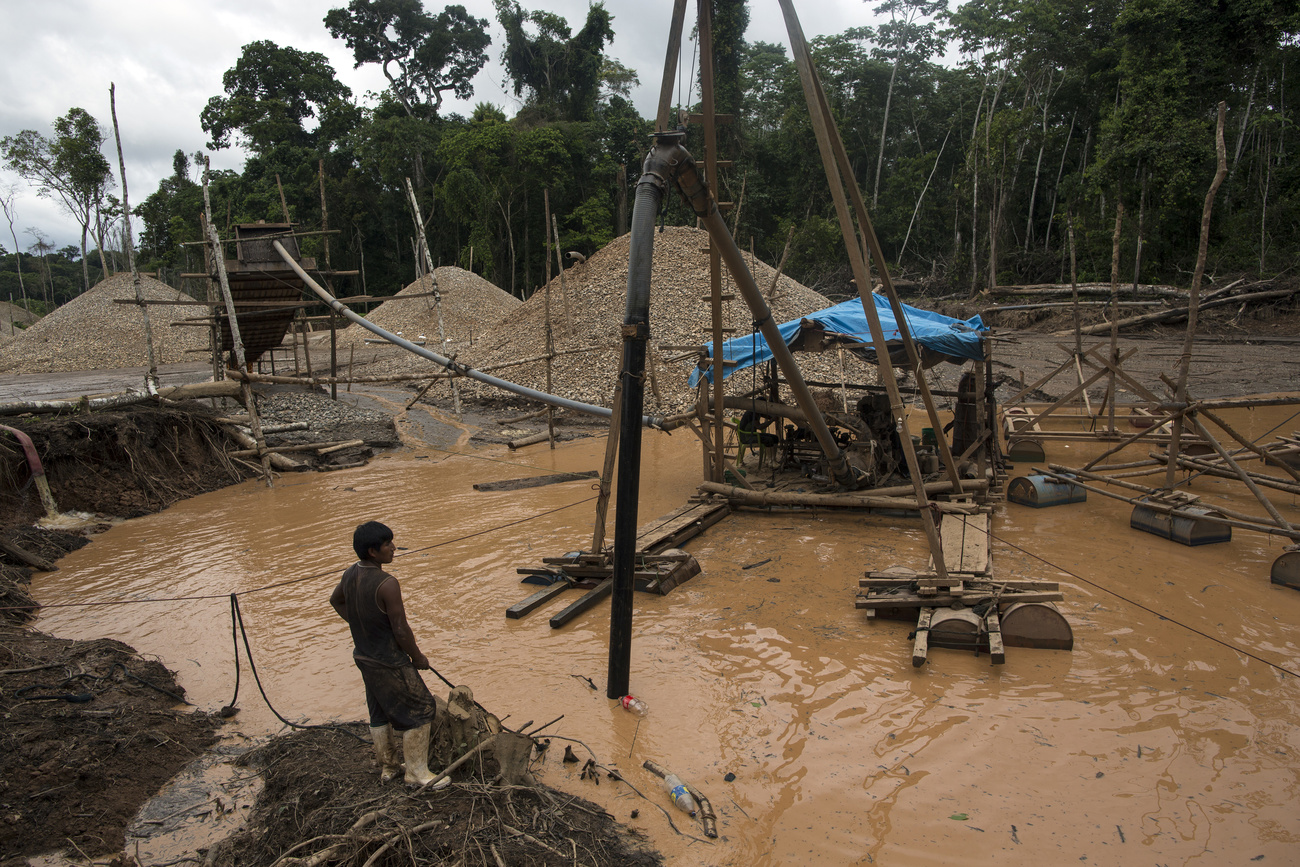Confusion reigns as responsible business debate heats up
Our analysis of what the biggest global companies in Switzerland are up to. This week: responsible business debate, gold refineries speak up, and Roche rapid Covid-19 tests.
With a nationwide vote just over a month away, campaigners for and against Switzerland’s Responsible Business Initiative are trying to win fans. But keeping the facts straight is getting more difficult.
A few days ago, Swiss public television SRF hosted a lively debateExternal link that offered a glimpse into why this initiative has been hotly contested for years. On the fundamentals, both sides agree: multinational companies should respect human rights and the environment and failing to do so isn’t good for Switzerland’s reputation.
But the debate revealed divisions in the basic understanding of the initiative itself. Which companies would it apply to if passed? What is meant by control over subsidiaries or suppliers? Does the initiative go beyond what’s already expected of companies in Swiss law? At one point, those debating the initiative had to clarify what version of the text they were even talking about.
Political campaigns are usually guilty of some massaging of the facts, so the confusion isn’t surprising. However, it reveals a more fundamental challenge in the initiative: solutions to the problems it raises are still a work in progress.
There was a time when chocolate companies would deny the existence of child labour in their supply chains, and now Nestlé writes 75-page reportsExternal link on how it is tackling the issue. But child labour remains rife on cocoa plantations (and the pandemic isn’t making it easier, as the New York Times recently revealedExternal link).
A survey of more than 100 Chief Financial Officers released this week found that half didn’t think the initiativeExternal link would affect their business. Yet some companies and lobby groups have said that if the initiative is accepted, it could lead to a flood of lawsuits and make them think twice about operating in countries that could really use the investment.
The initiative may do more to change the practices of companies currently flying under the radar, which have less to lose from bad publicity than Nestlé. But could legal consequences – or at least the threat of them – be what is needed to clean up supply chains? Could the initiative jumpstart real change?
We’ll be covering debates around the initiative and these questions on swissinfo.ch in the coming weeks. (And, for some early polling by the Tages-Anzeiger, see hereExternal link.)
Let us know: how can we help you navigate the debate? What questions do you have about the initiative? Send me your questions, and our team will look into them: jessica.davis@swissinfo.ch
What else caught my eye?
Gold refinery CEO speaks out about why artisanal mining can be a good thing. Philippe Chave, CEO of Jura-based refiner PX Precinox, told my colleague Paula Dupraz-Dobias that industrialised mining is not the answer to improving conditions for artisanal miners – instead, governments and companies should focus on formalisation. Chave responds to questions about police raids at sites it was suspected of sourcing from in Peru, how Covid-19 has impacted the business, and what it will take to clean up the gold supply chain.
LafargeHolcim is facing a major lawsuit for some trickery in Cuba. The Tages-Anzeiger newspaper reported that the Swiss cement firm concealed a 50% stake in a Cuban cement plant it had held since 2001. The paper asserts that the company used a complex network of letterbox companies and transactions in the Netherlands and Spain to disguise the partnershipExternal link with the Cuban state. A US court has accepted a request for damages of US$270 million from 20 parties in Cuba who argue their land was seized for the cement plant.
Swiss pharma giant Roche tries to keep up with the demand for Covid-19 diagnostics. It announced earlier this week that it will be launching an even faster antigen test by the end of the year. The tests are needed more than ever here as the number of new daily infections doubled in one day to reach 2,823 on Wednesday. Roche’s diagnostics head told Reuters on Thursday that surging cases requires a shift to more testing with cheap, less-accurate antigen tests because the more accurate PCR tests are in short supply.
Thanks for reading.

In compliance with the JTI standards
More: SWI swissinfo.ch certified by the Journalism Trust Initiative













Join the conversation!